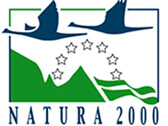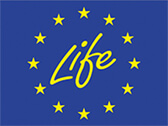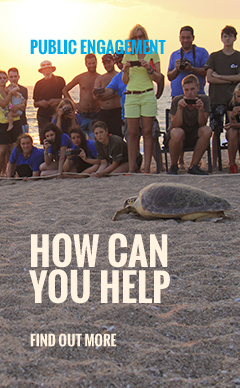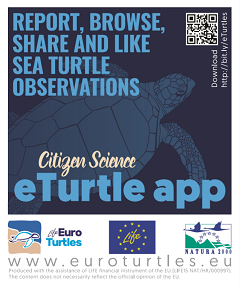17
OctPresentation of GSM tracking transmitter in Brijuni National Park
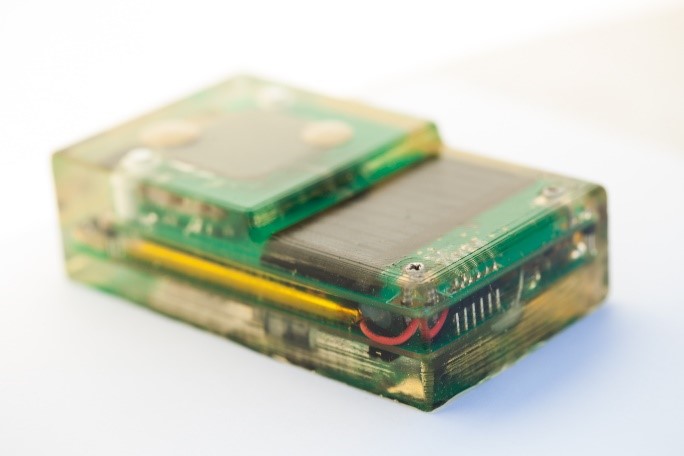
Brijuni National Park, 19. Oct. 2018.
Spatial information is of a crucial importance for the effective conservation management of sea turtle populations and identification of high-used habitats. Satellite telemetry is currently the most widely used method for obtaining such information. Although efficient, this remote sensing technique (i) requires substantial funds, due to the high costs of both tracking devices (satellite transmitters) and ARGOS satellite-based data receiving system, and (ii) it usually provides only limited accuracy of the locations, often inadequate for fine-scale identification of hot-spot areas. High costs of satellite telemetry often limit the number of tracked animals, which, coupled with the plasticity in individual behavior, results in only limited insights in spatial patterns of habitat use.
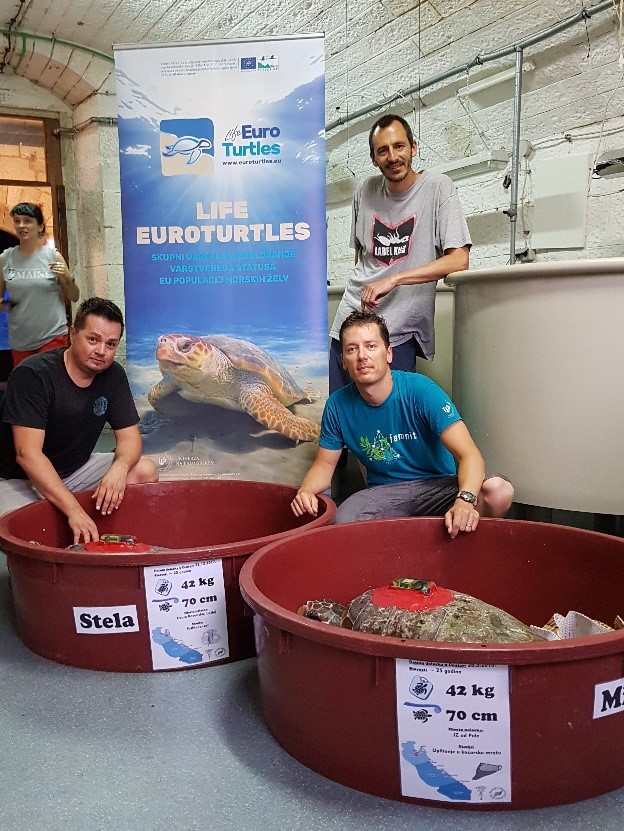
GSM tag testing
In order to reduce the costs of tracking and increase the quality and resolution of spatial data, researchers of the University of Primorska have developed a new device for tracking sea turtles. The new LIFE-Euroturtles tags use Snapshot GPS system for obtaining locations, which increases precision of spatial data in comparison to standard ARGOS-linked satellite tracking methodology. The GPS data is stored unprocessed in the internal memory of the unit and transmitted through GSM network to server computer when turtle surface, if GSM signal is available. Data processing is performed on an office or server computer. The tag is equipped with a solar panel, which recharge the battery and extends the operational time of the device.
This technology reduces the costs of obtaining high-quality spatial data, making telemetry more readily available to researchers, and allowing studies on larger sample sizes.
After intensive testing in the laboratories and on the sea the transmitter is ready for testing in the “real life” situations – on the sea turtles.
The LIFE Euroturtle event will be held on 19. October 2018. after the 6th Mediterranean Conference on Marine Turtles. and will feature the following activities:
- Presentation of the LIFE Euroturtle activities and project
- Presentation of the newly developed GSM tags for monitoring of sea turtles,
- which have been developed as a prototype within the project by the technical team of the University of Primorska who developed it
- A visit to the sea turtle rescue facility of the Brijuni National Park
- A release of rehabilitated sea turtles equipped with GSM tags
- After the event on Brijuni, the invited sea turtle experts will be visiting the Sea Turtle Rescue Center in Pula.
#LIFEEuroturtles #GSMtags #Loggerheadturtles #Natura2000
